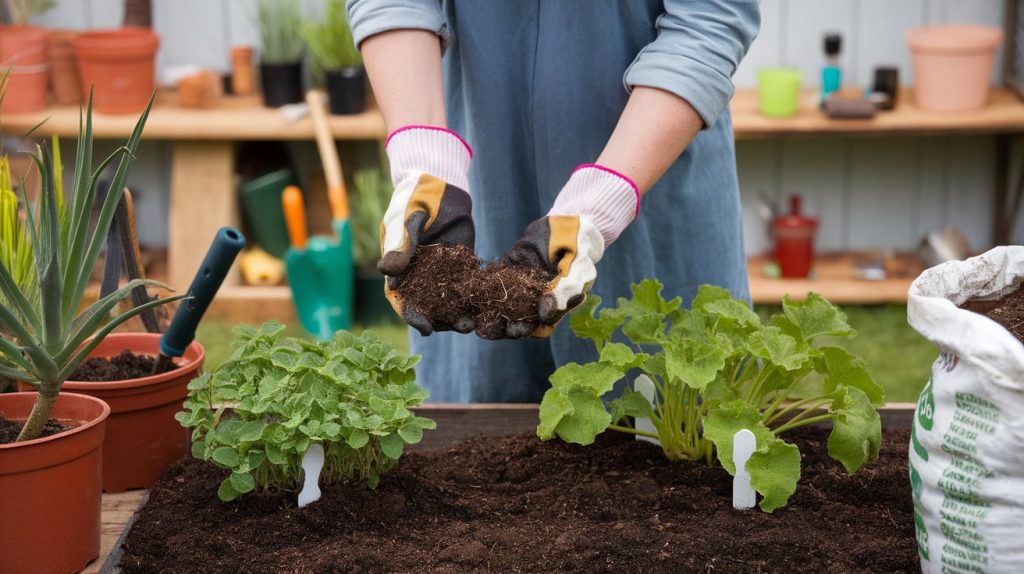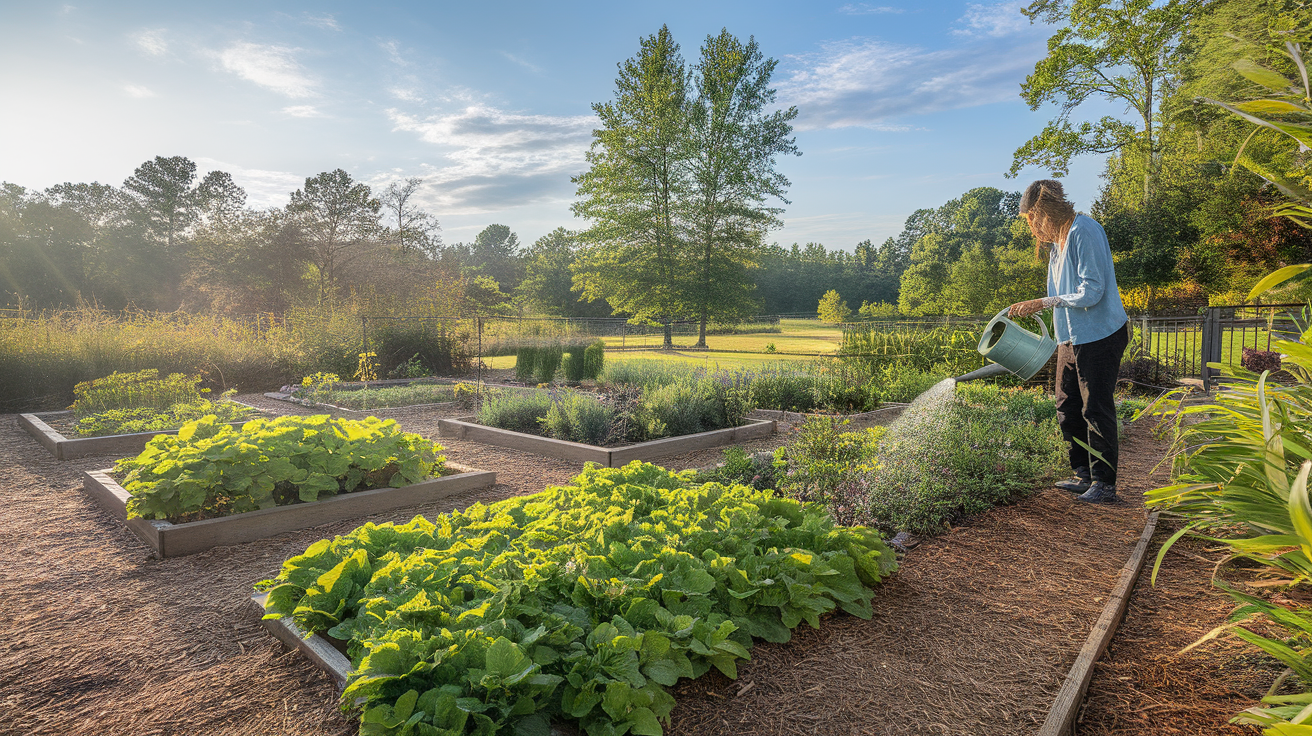Maintaining a lush, thriving garden in Greenwood, SC, requires a delicate balance when it comes to watering. Overwatering can be just as detrimental to plant health as underwatering, leading to a host of issues that can compromise the vitality of your greenery. In this comprehensive guide, we’ll explore the signs of overwatering, the impact on plant health, and practical strategies to prevent this common gardening pitfall, helping you cultivate a flourishing oasis in the Palmetto State.
| Key Factors for Preventing Overwatering in Greenwood, SC | Importance |
|---|---|
| Soil Type | Choosing the right soil composition is crucial to ensure proper drainage and moisture retention. |
| Watering Schedule | Developing an optimal watering routine based on plant needs and local climate is essential. |
| Drainage Techniques | Implementing effective drainage solutions can help mitigate the risks of excessive moisture buildup. |
Understanding the signs of overwatering is the first step in addressing this common gardening challenge. Plants receiving too much water may exhibit wilting, yellowing leaves, and a general decline in vigor. The impact of excessive moisture on plant health can be severe, leading to issues like root rot, nutrient deficiencies, and susceptibility to pests and diseases.
Several factors can contribute to overwatering in Greenwood, SC, including heavy rainfall, poorly draining soil, and improper watering practices. Choosing the right soil for your plants and developing an optimal watering schedule can mitigate these risks and ensure your garden thrives.
What is Overwatering?
Overwatering occurs when plants receive more water than they can effectively utilize, harming their health and growth. Excess moisture can disrupt the delicate balance between air and water in the soil, depriving the roots of the oxygen they need to function correctly.
Signs Your Plants are Being Overwatered
One of the most common signs of overwatering is wilting or drooping leaves, which may seem counterintuitive since we often associate wilting with underwatering. However, when plants are subjected to excessive moisture, their roots can become stressed and unable to transport water and nutrients to the foliage effectively. Other signs include yellowing or discolored leaves, soft or mushy stems, and a general decline in the plant’s overall vigor and appearance.
The Impact of Excessive Moisture on Plant Health
The impact of overwatering on plant health can be severe and far-reaching. Excessive moisture can lead to root rot, a fungal or bacterial infection that can quickly compromise the plant’s ability to absorb water and nutrients. This, in turn, can result in nutrient deficiencies, stunted growth, and increased susceptibility to pests and diseases.
Factors that Contribute to Overwatering
Several factors can contribute to overwatering in the Greenwood, SC area. Heavy rainfall, poor soil drainage, and improper watering practices are common culprits. In areas with heavy clay soils or low-lying landscapes, water can quickly accumulate and become stagnant, depriving the roots of the oxygen they need to thrive.
Choosing the Right Soil for Your Plants

Selecting the appropriate soil type for your plants is crucial in preventing overwatering. Well-draining, nutrient-rich soil promotes healthy root growth and allows excess moisture to drain away effectively. Amending your soil with organic matter, such as compost or peat moss, can help improve its drainage and water-holding capacity.
Developing an Optimal Watering Schedule
Establishing an optimal watering schedule is key to preventing overwatering in your Greenwood, SC, garden. The frequency and amount of water needed will vary depending on factors like plant type, soil composition, and local climate. Generally, it is best to water deeply and infrequently, allowing the soil to dry out partially between waterings.
Techniques for Improving Drainage
In addition to choosing the right soil type, several techniques for improving drainage in your garden exist. This can include installing raised beds, creating swales or ditches to divert excess water, and incorporating gravel or other permeable materials into the soil. Ensuring proper drainage is essential for preventing overwatering and promoting the overall health of your plants.
Identifying and Addressing Root Rot
If your plants are exhibiting signs of overwatering, it’s essential to address the issue promptly to prevent the onset of root rot. This fungal or bacterial infection can quickly spread and compromise the plant’s ability to absorb water and nutrients. Identifying the early signs of root rot, such as discolored or mushy roots, and taking appropriate remedial actions can help save your plants.
Protecting Potted Plants from Overwatering
Potted plants can be particularly susceptible to overwatering, as the confined soil and limited drainage can exacerbate moisture-related issues. To protect your potted plants, use a well-draining potting mix and consider adding drainage holes or elevating the pots to improve airflow and prevent excessive moisture buildup.
Adapting Watering Practices for Different Plant Types
Different plant species have varying water requirements, so your watering schedule must be tailored accordingly. Some plants, such as succulents and drought-tolerant species, may be more prone to overwatering and require a more cautious approach, while others may thrive with more frequent watering.
Tips for Monitoring Soil Moisture Levels
Regularly monitoring the soil moisture levels in your garden is an essential practice for preventing overwatering. Use a soil moisture meter or stick your finger into the soil to check the dampness. Adjust your watering schedule accordingly, ensuring that the soil can dry out partially between waterings.
Preventing Overwatering in Greenwood SC’s Climate
Greenwood, SC’s humid, subtropical climate can present unique challenges in preventing overwatering. Due to frequent rainfall and high humidity levels, monitoring soil moisture and adjusting watering practices are crucial. By being mindful of the local climate and implementing the strategies outlined in this guide, you can successfully protect your plants from the dangers of overwatering and cultivate a thriving garden in Greenwood, SC.
Conclusion
Maintaining a vibrant, healthy garden in Greenwood, SC, requires a delicate balance in watering. You can ensure your garden flourishes by understanding the signs of overwatering and its impact on plant health and implementing practical strategies to prevent this common issue. From choosing the right soil and watering schedule to improving drainage and monitoring soil moisture levels, this comprehensive guide has provided you with the tools and knowledge to protect your plants from the dangers of overwatering in Greenwood, SC.
Frequently Asked Questions
How can I tell if my plants are being overwatered?
The primary signs of overwatering include wilting or drooping leaves, yellowing or discolored foliage, soft or mushy stems, and a general decline in the plant’s overall vigor and appearance. It’s essential to closely monitor your plants and soil moisture levels to identify and address overwatering issues early on.
What are the consequences of overwatering my plants?
Overwatering can severely affect plant health, leading to root rot, nutrient deficiencies, and increased susceptibility to pests and diseases. Maintaining a balanced watering regimen is crucial to ensure your plants can thrive.
How can I prevent overwatering in my Greenwood, SC garden?
To prevent overwatering in your Greenwood, SC garden, choose the right soil type, develop an optimal watering schedule, implement effective drainage techniques, and closely monitor soil moisture levels. By tailoring your practices to the local climate and plant needs, you can successfully cultivate a flourishing garden.



